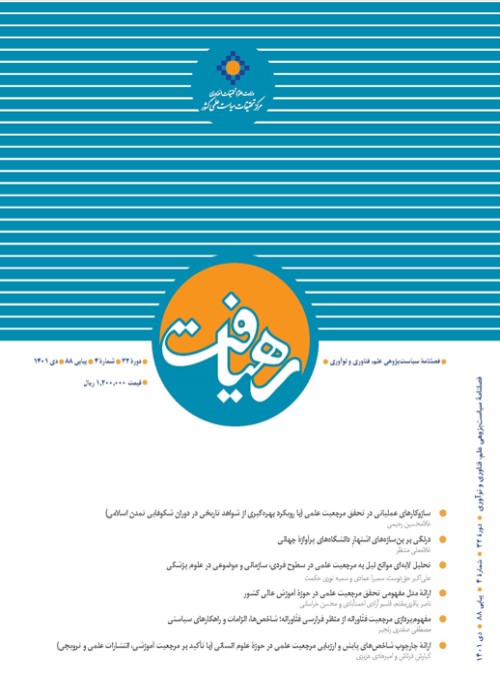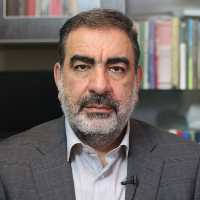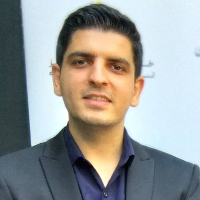Presenting a Conceptual Model For the Realization of Scientific Leadership in Iran's Higher Education System
Scientific leadership is one of the demands of Iran’s Leader and one of the major policies in the discourse of scientific progress in Iran, and in recent years, leadership in the field of science and technology has been explicitly and sometimes implicitly mentioned in the top documents and laws of the country. The current research aims to estimate the effective factors and strategies for realizing scientific leadership in the field of higher education in the country and to present a conceptual model related to it. This research is of a qualitative research type and in terms of its purpose, it is applied-developmental. For achieving the purpose of the research, the foundational data theory and the systematic approach of Strauss and Corbin have been used. Foundation data theory is a theory that is directly extracted from the data that has been regularly collected and analyzed during the research. In the Strauss and Corbin approach, which is also known as the paradigm approach, the theory is usually presented in the form of a structural model. In this approach, three types of coding are used: open, central, and selective coding. The core codes are structure (including causal conditions, intervention and context (background conditions)), and process (including strategy (action)). The data collection of this research was done through interviews in the form of specialized meetings with 19 experts in the field of higher education in person in February 1401. on average, each of the experts answered questions in the meeting for about 25-30 minutes. The interview questions included key questions related to the statistics of factors affecting the realization of scientific leadership at the level of higher education in the country and appropriate solutions to achieve it. The results of the research show that the key strategies for realizing scientific leadership in the field of higher education of the country include assessing the needs and determining the priorities of leadership, mission-oriented higher education centers, supporting human capital, program-oriented scientific leadership of the country, international scientific interactions, discourse creation and promotion, commercialization of achievements. Science, freedom of action and independence are the most scientific centers, and national leadership, civilization and economic prosperity are among the consequences of applying the mentioned guidelines and realizing scientific leadership in the field of higher education in the country. In this framework, the factors affecting the central category, which is the realization of scientific leadership in the country's higher education, were examined in three dimensions: causal factors, intervening factors, and contextual factors, and strategies were proposed to achieve the desired results of the research. Causal conditions include the production of scientific creations, researches based on solving problems and visibility, which were identified as the main factors and fields for the realization of scientific leadership in the field of higher education in the country. This indicates that on one hand, researchers and technologists should seek innovation and expand the boundaries of knowledge, and on the other hand, they should be committed to internal needs and solving current and future issues. In this way, while keeping pace with the world's science and technology developments, the challenges and problems of the country are also taken into consideration and measures are devised for them. The development of the frontiers of science and technology will establish the leadership of the country at the international level. Solving internal problems will also improve the leadership of the education and research system at the national level. In this way, while keeping pace with the world's science and technology developments, the challenges and problems of the country are also taken into consideration and measures are devised for them. In this way, amending laws, regulations, etc. will be very helpful and guide the way. Scientific streamlining, scientific diplomacy, global access to scientific products, and branding are among the things that will affect visibility. For this purpose, encouraging faculty members to publish their scientific achievements in official circles, as well as an active and continuous presence in scientific social networks, will provide the basis for their introduction and recognition and will bring further benefits to them. Also, the results of the research showed that the most important effective factors in the realization of scientific leadership in the field of higher education of the country are hardware and software infrastructures, elite human resources, and investment and financing, and they act as intervening factors. Strengthening research infrastructures such as laboratories, libraries and access to international bases, developing and providing educational and research facilities, creating joint educational systems, establishing large laboratories and observatories, equipping universities, providing up-to-date laboratory equipment and facilities..., trying to attract and Maintaining elite human resources in the country's science and technology sector and providing sustainable financial resources for the higher education system are among the things that policymakers and planners should pay attention to in this field. The approval of the guidelines for the selection of educational leaders of universities and higher education institutions is one of the executive policies of the Ministry of Science, Research and Technology in the field of preserving human resources in this field. Investing in priority areas, non-governmental financing, financial support for universities, investment and financing for research and innovation, creating a special budget line for scientific leadership, etc. The realization of scientific leadership by experts has been proposed.
- حق عضویت دریافتی صرف حمایت از نشریات عضو و نگهداری، تکمیل و توسعه مگیران میشود.
- پرداخت حق اشتراک و دانلود مقالات اجازه بازنشر آن در سایر رسانههای چاپی و دیجیتال را به کاربر نمیدهد.





